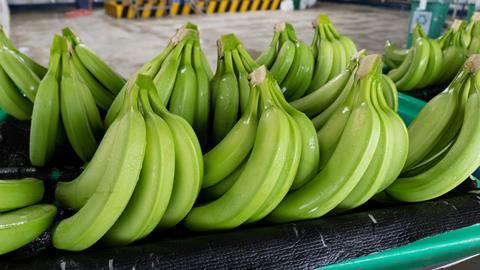Following a tour of Latin American producers, Alireza Emami, CEO of Iranian trader Zarrin Group, sees strong potential for Costa Rican bananas in the Middle East market
It is debatable which presidential election this year is most significant for the Iranian people, their own earlier this month or the one on the other side of the Atlantic in November.
For most, the key issue is sanctions, and Iran’s two presidential candidates differed markedly on how they viewed them: ultra-conservative Saeed Jalili believed Iran had bypassed sanctions, while moderate Masoud Pezeshkian saw sanctions as a sign that Iran had been bypassed. In the end, Pezeshkian came out victorious.
In the US, you could say there’s less of a difference between the presumed candidates on the question of Iran. Donald Trump’s unilateral withdrawal from the nuclear deal while president doesn’t bode well for a second term, but nor has much clarity come from Joe Biden, if indeed he is given the nod. You could say the only thing not up for debate is Joe Biden’s new prep team.
For Iranian imports of fruit, supposedly exempt from sanctions but in truth caught up all the same, this means new sources of supply are frequently required, not least for the number one fruit import, bananas.

Iranian fruit trader Zarrin Group has been looking at new opportunities in Latin America for imports of bananas to the Middle East region.
“Ecuador is the world’s largest exporter of bananas, showing differences in production quality and volume even compared to other Latin American countries,” said Alireza Emami, head of Zarrin. “We are examining the variations in destination markets among Latin American exporting countries in terms of economic policies and offers from other nations. The Middle East is one of the most significant destinations for banana consumption, so the high demand in this region enormously affects the price of the product.”
In addition to Ecuador, Emami said Zarrin had also visited packing facilities and met with major banana producers and exporters in Panama, Costa Rica, Colombia and Guatemala.
Promise of Costa Rica
On his travels, Emami met up with Jorge Arturo Sauma Aguilar, the head of Corbana, the National Banana Corporation of Costa Rica, in San Jose.

During the meeting, they discussed a promising opportunity for direct cooperation in banana exports, and both parties expressed interest in further developing this relationship, according to Zarrin.
“Costa Rica is among the world’s top three banana-exporting countries,” said Emami. “Last year, it shipped over 125m boxes of bananas, worth a total of more than US$1bn. Additionally, the banana sector in Costa Rica is a leading source of employment in the country.”
Emami expressed his enthusiasm for the environmental and sustainability efforts made in Costa Rica.
“In 1992, Costa Rica’s banana industry established an environmental commission, CAB, associated with Corbana,” he said. “It consists of various governments, institutions, ministries, universities and chambers of commerce to self-regulate the country’s banana production. All banana farms in Costa Rica are certified to various environmental standards such as GlobalGAP and Rainforest Alliance, with 53 per cent of them certified Carbon Neutral.
“Banana production in Costa Rica prioritises water conservation by utilising technologies that can reduce water consumption on farms by up to 80 per cent. This focus on optimising water resources is crucial for environmental sustainability and energy efficiency.
“The increase in productivity of the Costa Rica banana sector in recent years, considering only 1 per cent of the country’s territory is dedicated to the production of this fruit, is a clear example of how the strengthening of agricultural technology used by the industry has paid off. Supported by science and technology, the Costa Rica banana industry maintains constant research aimed at finding biotechnological products to protect crops and reduce the use of agrochemicals.”
However, according to Emami, the key is to negotiate and coordinate shipping connections with suitable transit times.
“After engaging in studies and meetings with shipping lines and forwarding companies in San Jose and the Middle East, we discovered their interest in offering this service,” said Emami. “Presently, we are assessing the shipping expenses for this route as an alternative to the Mersin route to Iran, a key banana-importing hub in the Middle East.”



